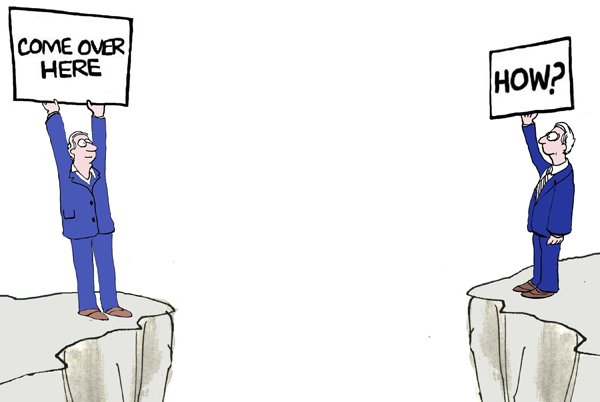Finding the right ism
Without a doubt we live in a world full of labels. We use these labels not only to organize, if you will, ideas and notions in our minds, but also to attach emotional cognitions to them. This is to say that a word, almost by itself, can trigger an emotional response simply by it being a particular label that connects a hot association.

img src
I think this particular dynamic, this way that we organize ideas, thoughts and by logical consequence ideologies, is a somewhat primitive tool for optimal discussion. In other words, for the most part two people having a conversation, a debate, don't take enough time to define definitions, and that line is not particularly redundant.
Define your Ism
When we talk about society, governmental structures, political ideas, economic models, we connect all these complicated thoughts to simple labels too. That being said, we might be using the same words, the same isms as I call them, but not be talking about the same thing whatsoever.
Because keeping these conversations moving forward is such a delicate but necessary task, I often find myself taking a few steps back to see if we agree on the labels before proceeding. In other words, defining the Isms being discussed. It's precisely then when I've found myself making the decision of continuing the conversation or simply stopping it all together, knowing there is no fertile ground for discussion.
Anecdotal Noise
One of my biggest frustrations when it comes to discussing points in the search of truth, is when anecdotes with strong emotional baggage are introduced into the conversation. I say frustration, because conflating macro with micro is not only not productive, but destructive to progress.
Abandoning abstracts for a second, imagine us discussing health benefits of hiking, of being active, to then talk about the case of the man who was attacked by a Mountain Lion to then conclude two obviously ridiculous thoughts.
- One should not hike, the risk is too high.
- If you are to hike, make sure you know how to kill big cats.
It's pretty obvious that my logical derailment has little to no value to the core idea of the conversation, to the fact that staying active is good for our health. Yet, logical derailments of this very nature are part of our discussions almost every single day, and more often times than not we lack the ability to bring them back into cohesion.
Emotions can never be entirely suppressed from discussions and I hold no illusions that they can be, but self awareness is a practice we should all strive for in my opinion and it's certainly one that I attempt to practice on a daily manner, more so because I engage in plenty of healthy disagreements.

Life is a single player game
Discovering ourselve is the name of the game
Recommend reading “Beginners Mind Zen Mind”
Thank you Nathan, i will look that up!! keep hustling my brother, you are killing it! I appreciate all you do.
@meno, Diversified people pursue different situations in their life and that's why people hold different definition for same aspect, subject, situations and ideas.
Disagreements are healthy because it's an true expression in many cases. When we agree which is agreeable and disagree which is disagreeable then we will attain effective flow of productive development both personal and societal.
Being self-aware is one of the most challenging efforts I have experienced in my professional career as we often think we know best particularly after achieving some success. However, success just blinds us into a comfort zone that disables us to realize that learning is always needed to evolve and improve.
Posted using Partiko iOS
To listen to the audio version of this article click on the play image.

Brought to you by @tts. If you find it useful please consider upvoting this reply.